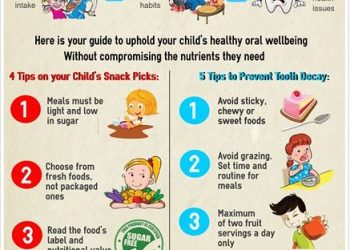Feast on a full platter of emotions, garnished with stress and sprinkled with a pinch of melancholy; hasn’t this been our go-to comfort meal far too often? Let’s face it, we’ve all succumbed to these moments of emotional eating, finding solace in a tub of ice cream after a heartbreak, or a bag of chips amid workplace tension. But what happens when this once-in-a-blue-moon binge turns into a daily drama? It’s time we took charge of our emotional eating habits and shaped our relationship with food in a healthier, more joyous fashion. Embark with us on this enlightening culinary journey as we share a generous serving of insightful tips for overcoming emotional eating habits. Emotional eating is often defined as the use of food to suppress or soothe negative emotions like stress, anger, fear, boredom, sadness, and loneliness. Emotional hunger doesn’t stem from the stomach but from our feelings and can lead to unhealthy cycles of binge eating. Identifying your emotional triggers, forces you to face them directly, reducing the need to reach for food for comfort. These triggers could include situational cues, emotional state or even certain people and places. Once identified, strategies can be developed to handle these triggers differently.
It is essential to understand the difference between emotional hunger and physical hunger. While the former urges you to satisfy it instantly with specific comfort foods, the latter can wait. In addition, emotional hunger often leads to mindless eating whilst physical hunger doesn’t make you feel guilty. Practising mindfulness techniques can help manage emotional hunger. First, ask yourself why you want to eat — is it due to physical hunger, stress, or boredom? If it’s not physical hunger, find a behavior to substitute eating. Secondly, before you eat, take a pause to appreciate your food — its appearance, smell, and taste. Engaging your senses helps you find satisfaction in smaller servings and allows for better digestion.
Food should be our ally, not adored or feared. Cultivating a healthy relationship with food means cherishing it as a source of nourishment and not chastising yourself for enjoying a variety of foods. Remember, indulging in your favourite treat occasionally isn’t the end of the world. The goal is to opt for balance over binge. Strive for a balanced intake of proteins, carbohydrates, and fats. Opt for fruits, vegetables, and whole grains, but also allow room for small indulgences.
In the end, overcoming emotional eating means reshaping your complete lifestyle, focusing on holistic wellness rather than dieting. Developing a holistic action plan can involve maintaining regular eating schedules, ensuring adequate sleep, engaging in regular physical activity, and incorporating relaxation and stress-management strategies. It’s also essential to seek support, from friends, family, or even professional help, to stay focused and motivated in this journey towards emotional wellness. Emotional eating doesn’t signify a lack of willpower; it’s a sign of unmanaged stress or unprocessed emotions. Bring compassion and patience in your journey to overcome it, remind yourself of your achievements, and rejoice in your progress however small. As our culinary journey concludes, it’s important to realize that overcoming emotional eating habits is akin to going on a diet—not of food, but of emotions, patterns, and habits. It’s an inward journey that enables you to handle stress, manage out-of-scale emotions and, ultimately, hold a loving spoon to yourself. Remember, lasting changes take time. Potholes, detours, and roadblocks are part of the trip and by no means spell failure. So, arm yourself with these nutritious tips, register the rhythms of your mind, and weave a restorative relationship between your feelings and food. You’ve got this! Break the chains of emotional eating and cruise down the road of balanced, mindful nourishment. Because you, dear reader, deserve a fresh plate…and an even fresher perspective.














